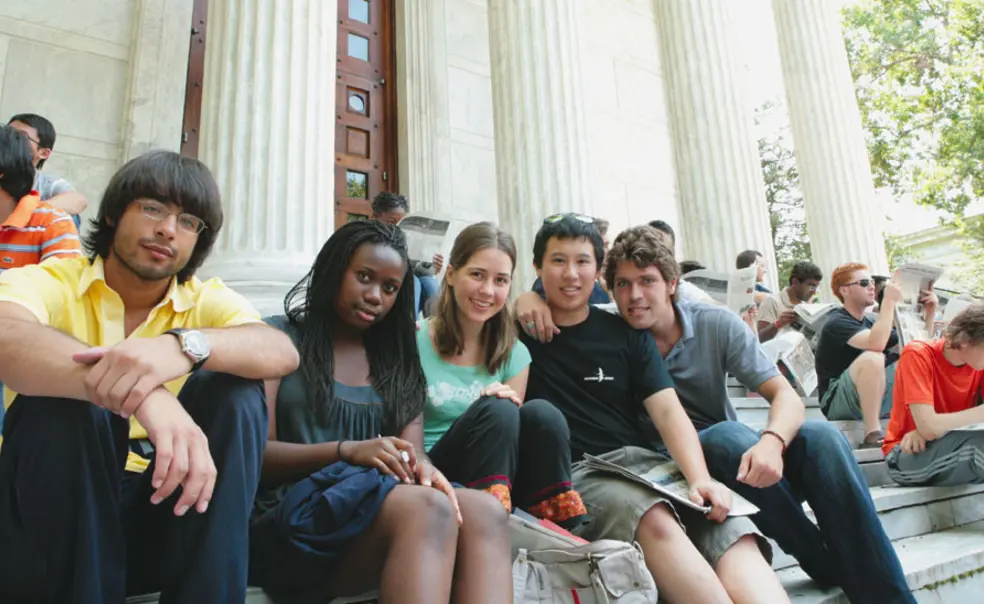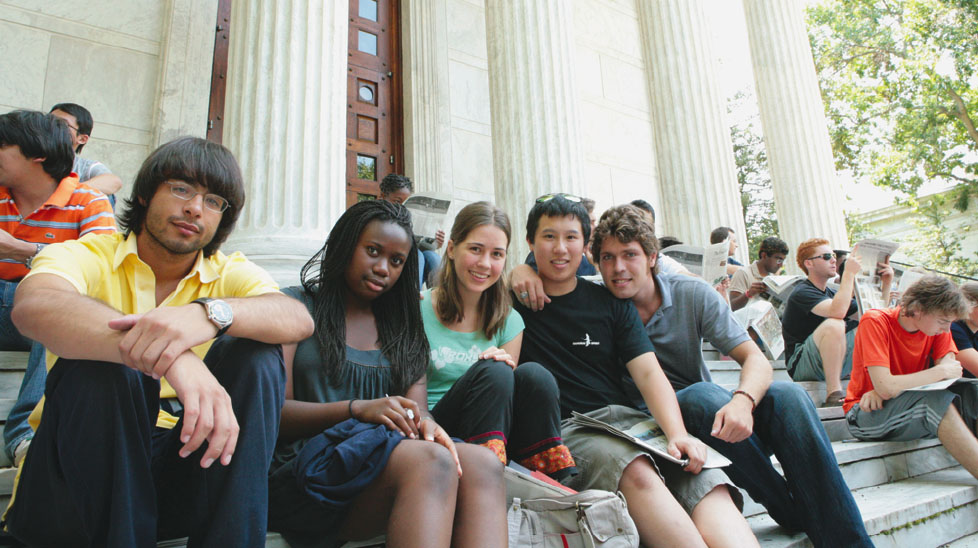Bringing the World to Princeton
In a recent President’s Page, I discussed Princeton’s renewed commitment to internationalizing our campus and preparing our students to embrace global perspectives and sensibilities. I described the future campus as a bustling hub of international comings and goings by faculty and students. Just as it will be essential for students to have more opportunities to leave Princeton in order to study and work abroad, it is equally important that students from all over the world have Princeton as their educational destination. Some of you will remember a time when non-American undergraduates were few and far between at Princeton. In 1930, for example, only six of 629 freshmen hailed from outside the United States. By the 1960s, Princeton was growing somewhat more cosmopolitan: the Class of 1965 included 25 international students (three percent of its membership), drawn from 10 countries. Today, Princeton’s student body includes a large and exceptionally dynamic international contingent: there are 139 students from 43 countries in the Class of 2011, constituting more than 11 percent of this year’s freshmen. When other undergraduate classes and our even more cosmopolitan graduate student body are factored in, the number of international students on campus this year stands at 1,705, creating a critical mass that is greatly enriching the educational experience of American and non-American alike. There are a number of reasons why Princeton is attracting so many students from abroad, beyond the stellar reputation of the University and its faculty. Perhaps the most important is the generosity of our financial aid program, which draws no distinction between American citizens and students of other nationalities. Princeton is one of only six American colleges and universities, including Harvard and Yale, to extend need-blind financial aid, with full need met, to international students, and since this policy was formally adopted in 2001, the number of undergraduate applicants and matriculants from other countries has risen sharply, with more than threequarters now in receipt of financial aid. This is significantly higher than the overall percentage of the student body on aid, underscoring the critical importance of financial aid in attracting the most talented international students. Another measure of this initiative’s success can be seen in the growing number of Eastern European and African students and the fact that Canadians no longer comprise the majority of incoming international students.
The level playing field for international talent that we have built at Princeton would not be possible without the globebridging power of the Internet and our Web-based application forms, which include interfaces designed specifically for students from abroad. Since their introduction in 2002, these forms have made it infinitely easier for international students to join our applicant pool, and the impact of this innovation, in both practical and psychological terms, cannot be emphasized enough.
The international character of Princeton’s student body also owes an enormous debt to the leadership of alumnus and trustee Shelby M. C. Davis ’58, who has devoted his energy and resources to building global understanding through cross-cultural education. In 2000, he and his wife, Gale, made it possible for some of the most internationally minded of international students to join our University community. Established on an open-ended basis, the Davis United World College Scholars Program meets the full financial need up to $40,000 per year of any student we admit from the United World Colleges—a network of 12 international schools on five continents that in 2007 provided two years of pre-collegiate education to highly talented and motivated students from 126 countries. Princeton was one of five institutions invited to pilot this scholarship program, which has since expanded to include 88 American colleges and universities. This year we are hosting 100 Davis UWC Scholars, whose nationalities range from Mexican to Norwegian to Kenyan to Malaysian to Australian and who are leaving their mark both inside and outside the classroom. In 2003, for example, Davis UWC Scholars were instrumental in bringing President Hamid Karzai of Afghanistan to Princeton.
We are also grateful to Shelby and his mother, Kathryn Wasserman Davis, wife of the late Shelby Cullom Davis ’30, for their support of Princeton’s International Center, whose mission is to build a sense of community among students and scholars from abroad and help them to share their talents and perspectives with all Princetonians. For it is not sufficient to admit international students to Princeton; we must also ensure that while they are with us, they are fully integrated into the life of the University and establish the kind of intercultural social and intellectual bridges that are so important to Princeton and our world. The Davis International Center, now named in honor of Kathryn and her husband, sponsors a host of programs—from “bridging cultures” luncheons and dinners, to English-language tutoring, to a month-long international festival in April and this past December’s “Emerge! A Global Bazaar,” an international food and craft festival. Perhaps the center’s most critical role, however, is to create a climate in which students of every nationality and culture are encouraged to listen to and learn from one another and thereby look beyond the superficial sound bites and stereotypes that color international relations.
When it comes to fostering a global vision among Princetonians, there is no substitute for bringing students from around the world together. In our classrooms, dining halls, and dormitories, the brightest students from this country and scores of others are sharing stories, debating ideas, and forming lifelong friendships that will serve our nation and all nations well.













No responses yet